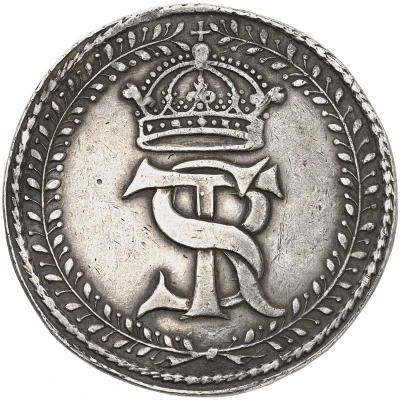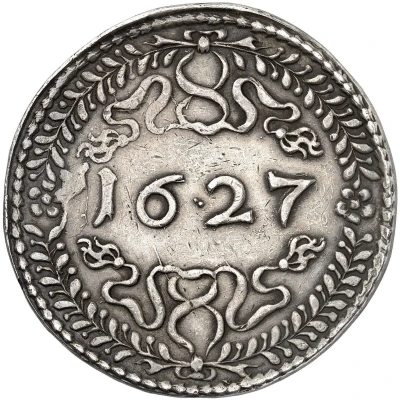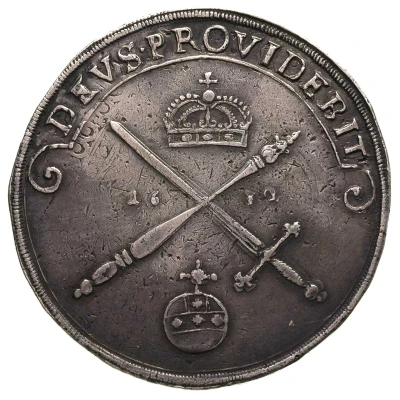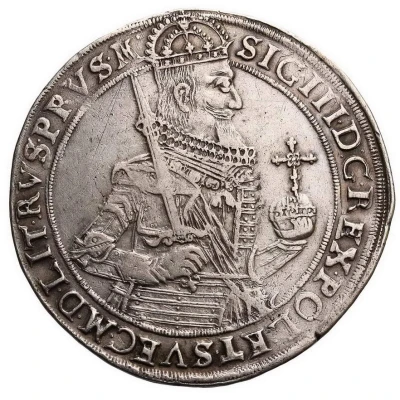
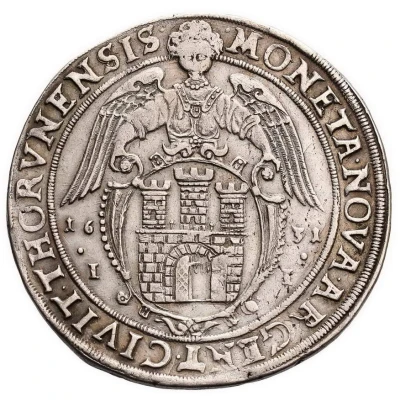

© Antykwariat Numizmatyczny - Michał Niemczyk
Talar toruński - Sigismund III Vasa Toruń
| Silver | 28.716 g | 44 mm |
| Issuer | Polish–Lithuanian Commonwealth |
|---|---|
| King | Sigismund III Vasa (Zygmunt III Waza) (1587-1632) |
| Type | Standard circulation coin |
| Years | 1630-1632 |
| Value | 1 Thaler (1 Talar) (8) |
| Currency | First Zloty (1573-1795) |
| Composition | Silver |
| Weight | 28.716 g |
| Diameter | 44 mm |
| Shape | Round |
| Demonetized | Yes |
| Updated | 2024-10-07 |
| Numista | N#122832 |
|---|---|
| Rarity index | 95% |
Reverse
Script: Latin
Lettering:
.MONETA. NOVA. ARGENT.CIVIT.THORVNENSIS.
16-31
I-I
Comment
Kopicki 8262 H-L (Hans Lippe)Pictures: © Image courtesy of Antykwariat Numizmatyczny - Michał Niemczyk
Punch 1:
*SIG III. D. G. REX. POL. ET. SVEC. M. D. LIT. RVS. PR. MA.SA*
*MONETA. NOVA. ARGENT. CIVIT. THORVNENSIS. 1630*
Punch 2:
*SIG. III. D. G. REX. POL. ET. SVEC. M. D. LIT. RVS. PRVS. MA.SA.LV*
*MONETA. NOVA. ARGENT. CIVIT. THORVNENSIS. 1630*
Punch 3:
*SIG. III. D. G. REX. POL. ET. SVEC. M. D. LIT. RVS. PRVS. MA.SA.L
*MONETA. NOVA. ARGENT. CIVIT. THORVNENSIS. 1630*
Kopicki 8263 I-I
Kopicki 8264
Pictures: © Image courtesy of Antykwariat Numizmatyczny - Michał Niemczyk
Punch 1:
Punch 2: obverse the same as Punch 1, but different reverse
Kopicki 8265
Pictures: © Image courtesy of Antykwariat Numizmatyczny - Michał Niemczyk
Interesting fact
The Talar toruński was a silver coin minted in the city of Toruń during the reign of King Sigismund III Vasa of the Polish-Lithuanian Commonwealth. What's interesting about this coin is that it was minted using a unique technique called "bullet casting," where molten silver was poured into a bullet-shaped mold to create the coin's distinctive shape. This technique was used to create a large number of coins quickly and efficiently, making the Talar toruński a common sight in the Commonwealth's economy during the early 17th century.
